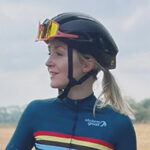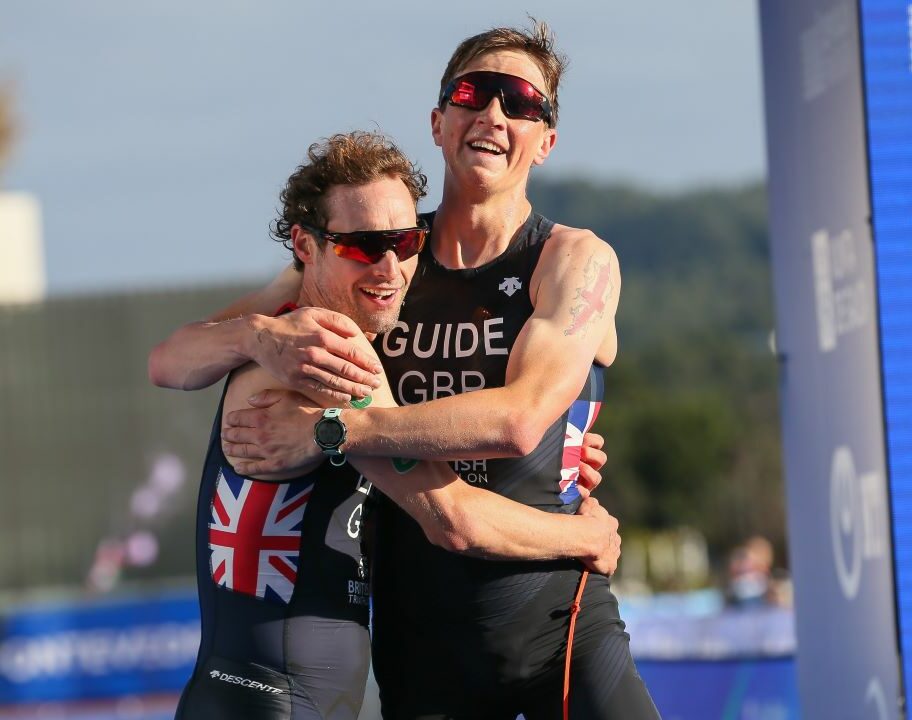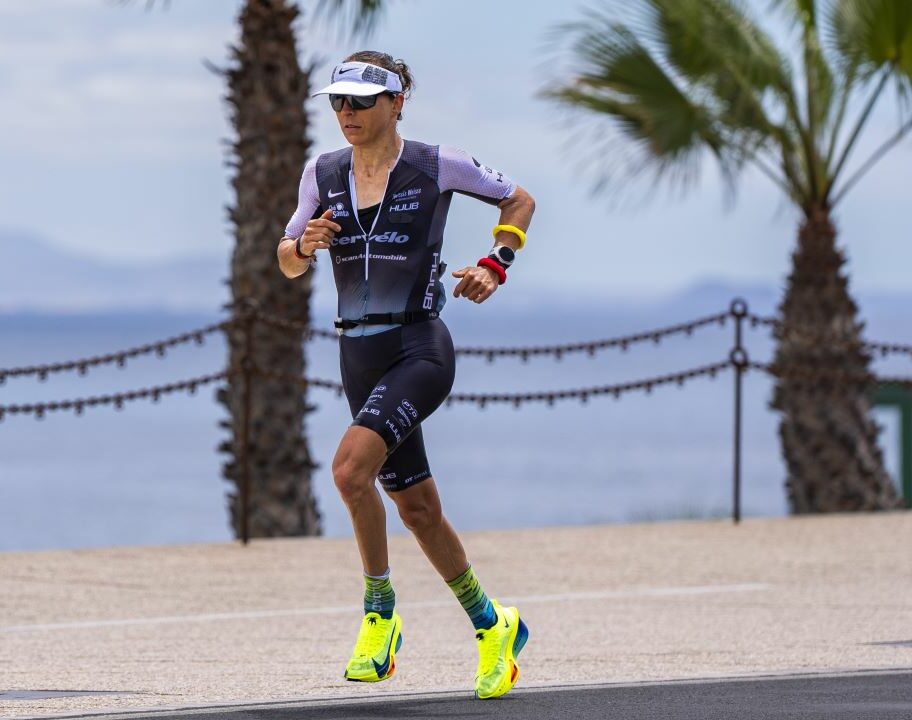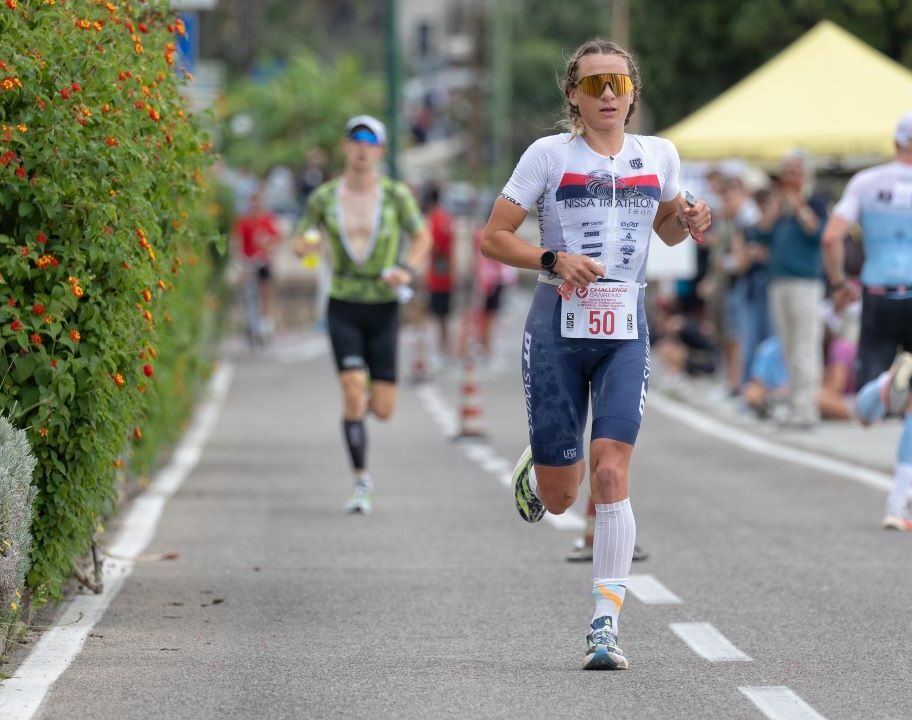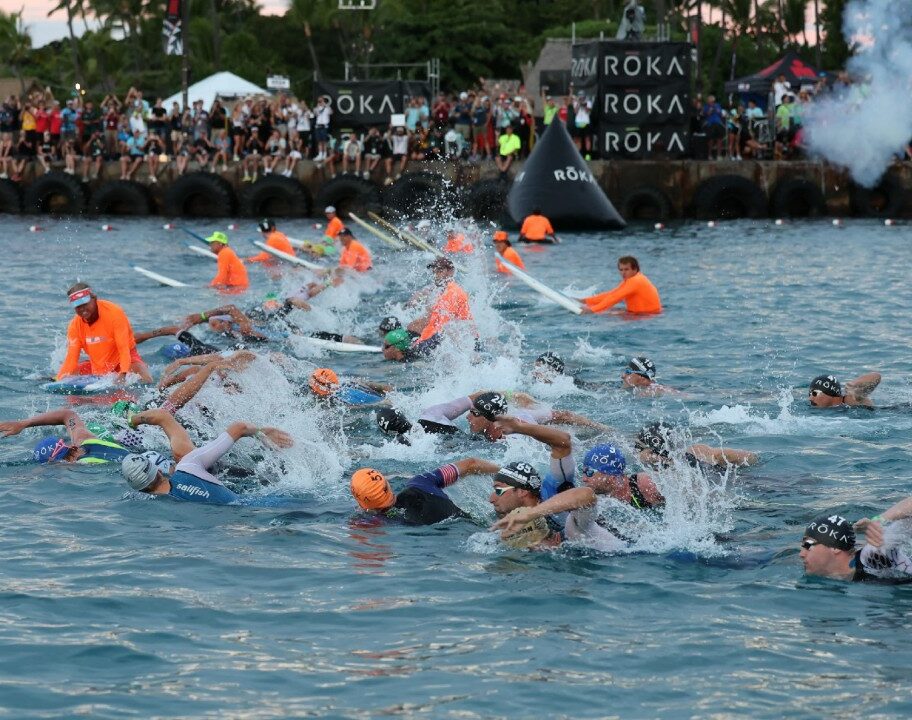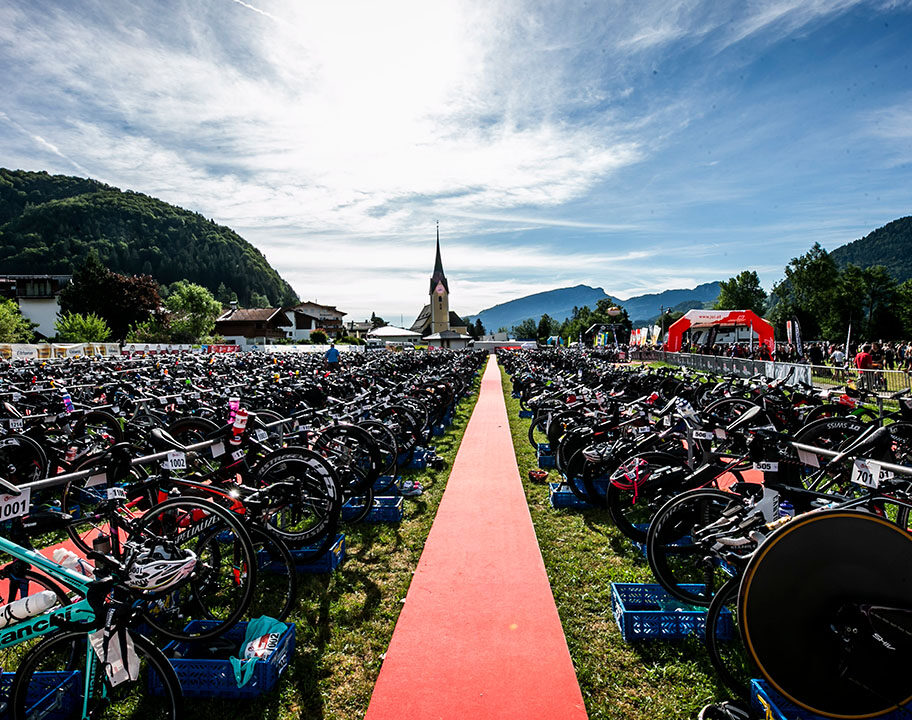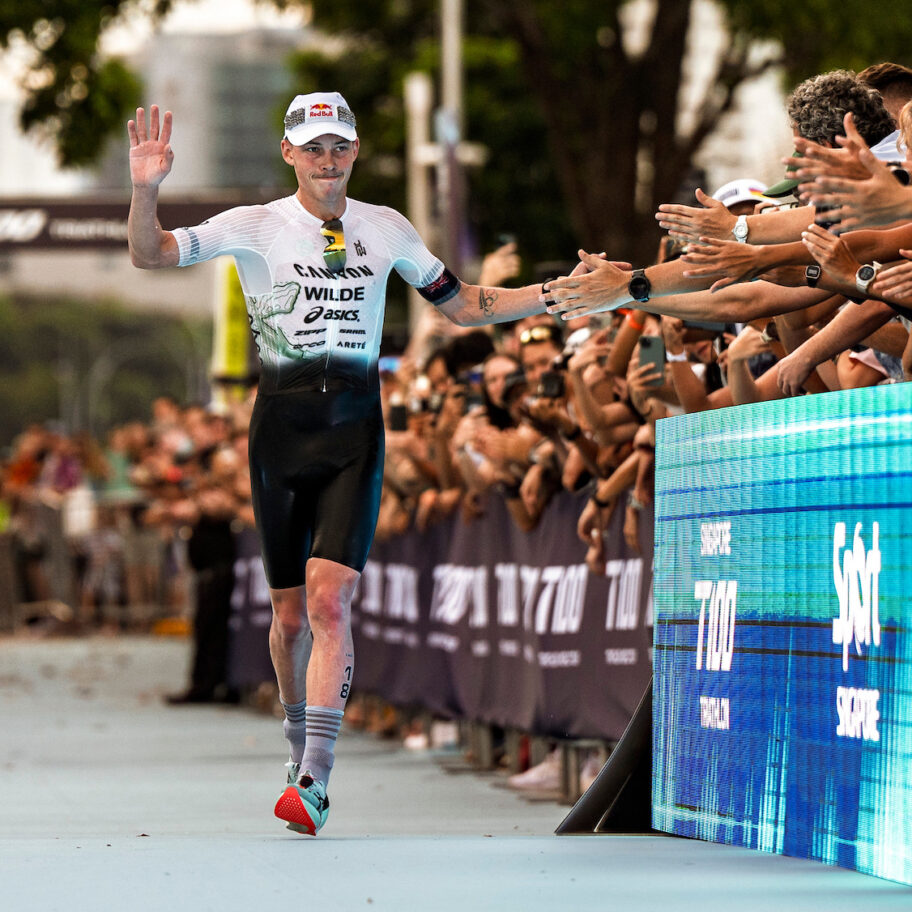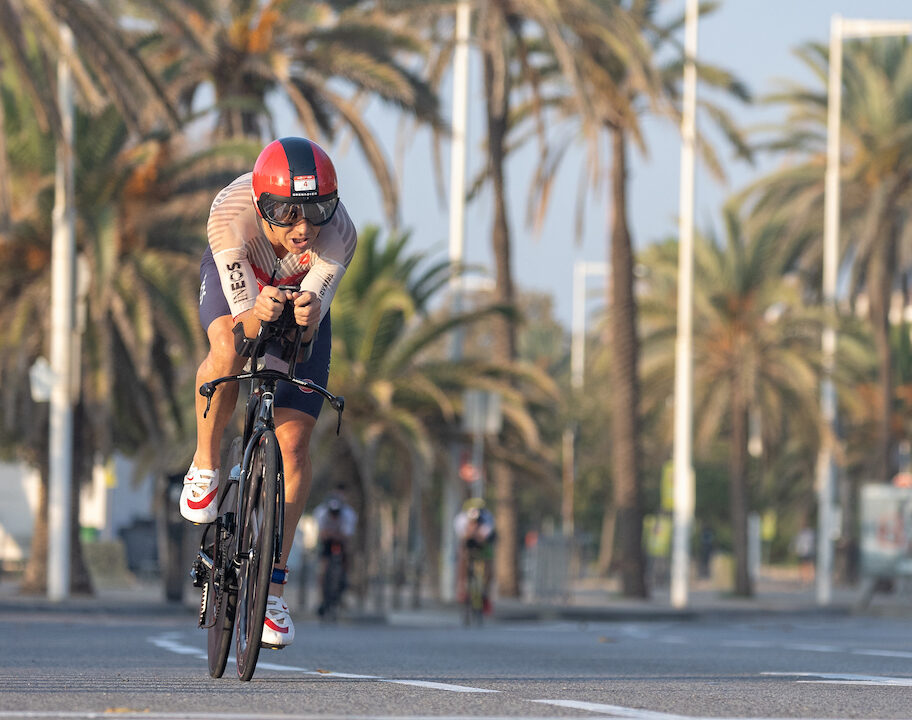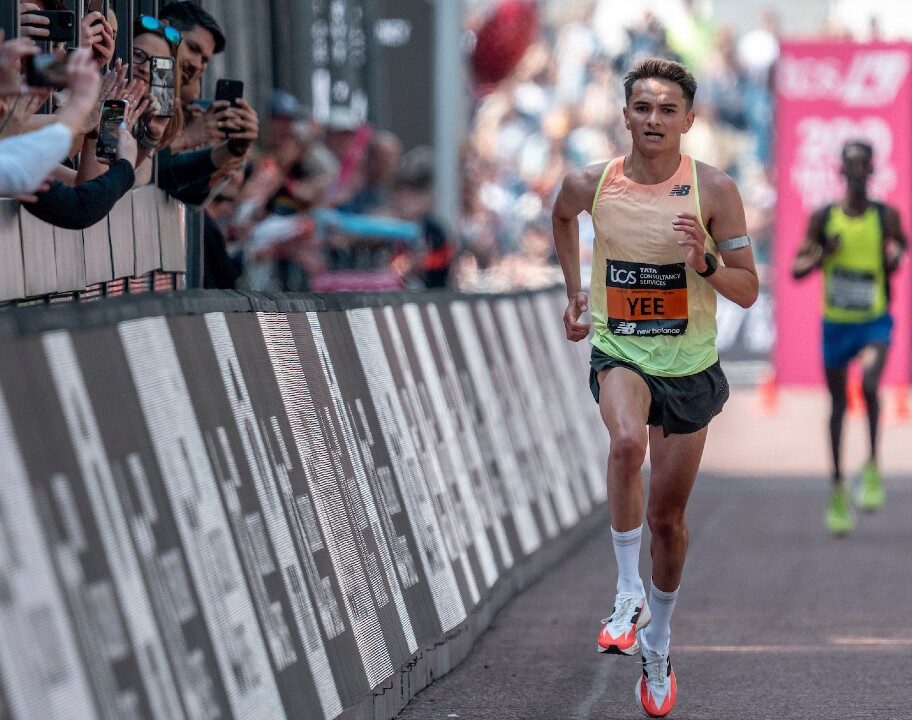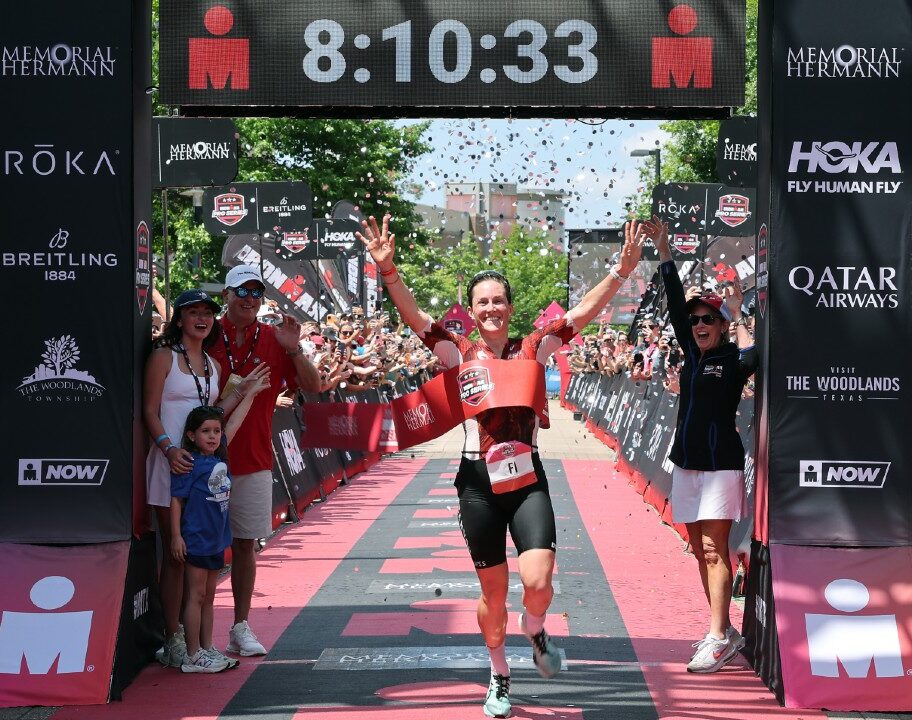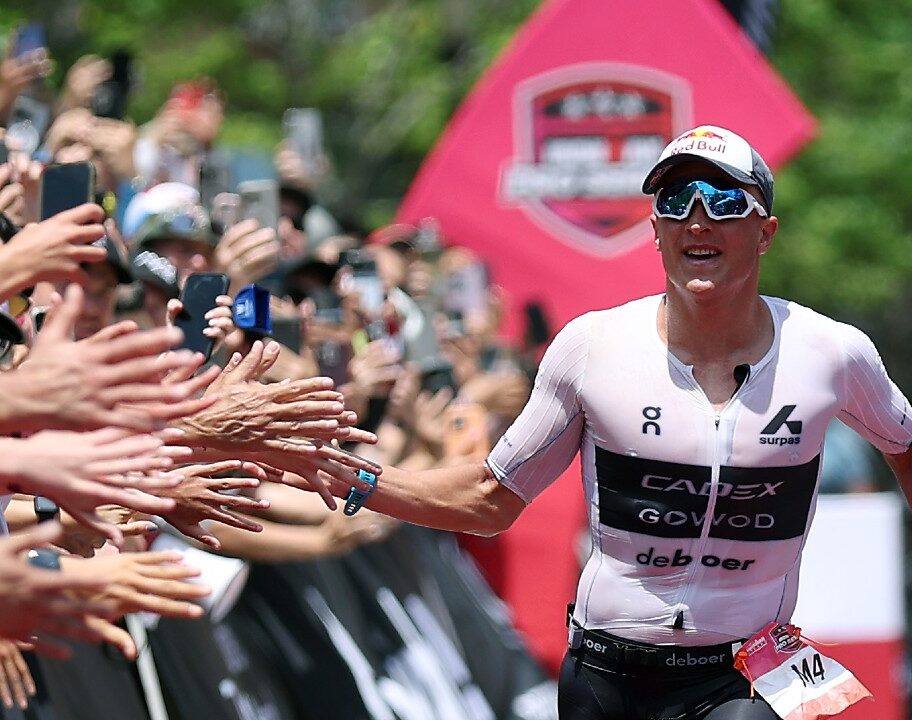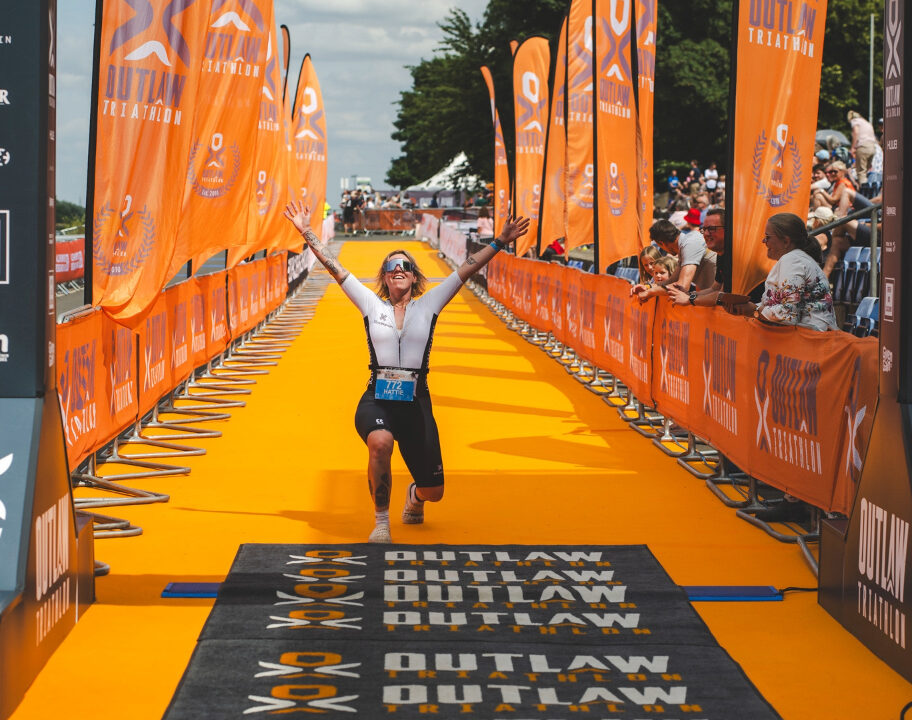Rob Sears is a triathlete, coach and personal trainer living with Retinis Pigmentosa (RP) – a genetic eye condition which affects the retina’s ability to respond to light, causing a loss of vision over time. A trip to watch his cousin take part in the London Triathlon in 2010 inspired Rob to give the sport a go himself – and he was soon hooked.
But after 6 years of racing, Rob’s vision reached a stage where he was no longer able to compete solo – forcing him to take a step back from the sport. A few years later, Rob started competing in para triathlon and rediscovered his love of the sport all over again. Now part of Team Outlaw 2025, Rob is incredibly passionate about helping and inspiring others to get involved with triathlon and experience the community, camaraderie and self-belief that the sport brings.
We caught up with Rob to find out more about his experiences, get his insights on how events organisers can work to make racing more inclusive. And to get his top tips as a coach and an athlete for other age-groupers looking to overcome self-doubt and fulfil their potential on race day.
“I crossed the line and just burst into tears because I knew that was probably going to be it for me…” The journey into para triathlon
“I’ve always loved sport, although I didn’t find triathlon until I was 30. I went to watch my cousin Zoe race the London Triathlon in 2010 and went back the next year to do it myself. I had a terrible race but loved the event and buzz of the sport. I was hooked!”
After that first race back in 2011 Rob raced solo for 6 years. But it was during IRONMAN 70.3 Weymouth in 2017 after several ‘hairy’ moments on the bike, that he realised his journey as an individual athlete had come to an end. Speaking in a video on his YouTube channel, he reflects on the moment he crossed the finish line: “I crossed the line and just burst into tears because I knew that was probably going to be it for me.”
Finding triathlon again
“I raced as an individual for 6 years and knew the day would come when I wouldn’t be able to race on my own anymore. When that happened I threw all of my energy into coaching triathletes and loved being involved in the sport, living vicariously through their achievements.”
“But I missed racing. In 2023 I did my first Para Triathlon races and rediscovered my love of racing again.”
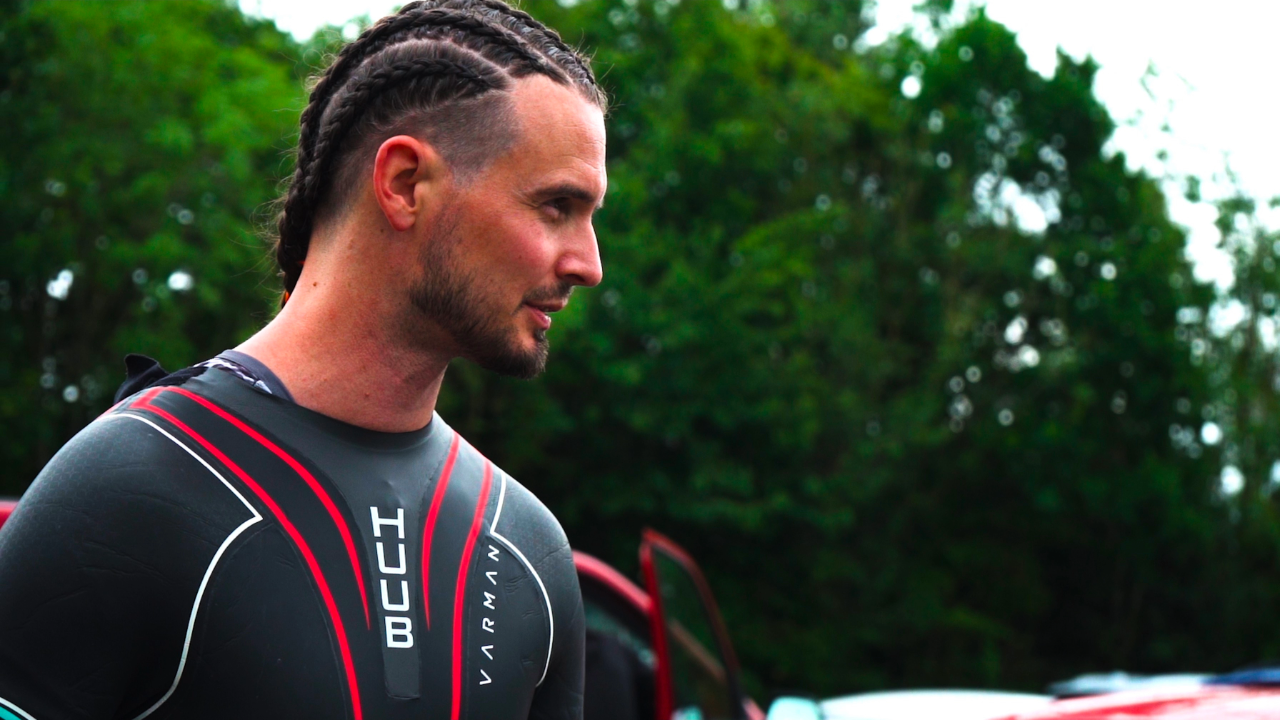
“I think losing the sport but then finding it again means I appreciate every event and am more passionate about triathlon than ever before.”
Since rediscovering the sport, Rob’s journey has seen him race as a para athlete and give huge amounts back to the triathlon community. “My biggest high was definitely my first race with my wife as a Para Triathlete. It was our first and only race together (I race with a male guide now), but as hard as the tethered swim and tandem bike was, once we hit the run, I knew I was back doing what I loved.”
“Racing the Para Triathlon British Champs has been very cool as well!” Check out the video below to see Rob in action at the British Paratriathlon Championships at Eton Dorney.
“We are fighting alone, but we suffer together.”
Rob’s triathlon journey hasn’t stopped at his own training and racing – as a coach and active part of the triathlon community, he channels his energy into helping and inspiring others to get into the sport.
“Triathlon is a ‘Me Vs Me’ sport. There are a few who are racing each other obviously, but the majority of people are doing a triathlon for themselves. To be fitter or faster or healthier than they were. To prove they can. To achieve something incredible.”
“Triathlon is an inclusive community. Everyone respects that everyone is doing this for their own reason. There is a beautiful camaraderie that brings us all together. We are all fighting alone but we suffer together.”
“My passion comes from knowing what triathlon has done for me and my desire to help other people feel that for themselves no matter who they are and where they are starting from.”
2025 goals
2025 is set to be a big year for Rob, racing at several Outlaw Triathlon events as well as the Para Tri Super Series with his new guide, Ant.
“I’ve just got back into training after 6 months of ill health due to my arthritis. I’m excited to be doing anything in 2025!”
“I’m doing the sprint at Nottingham Half weekend with my new guide Ant. It’ll be great to be racing into shape for the Para Tri Super Series. I am entering relay teams for Holkham and Nottingham Full weekend where I’m doing the runs. Zero to marathon in 6 months? I’ll be excited to get to the Outlaw orange carpet!”
“I’m most excited to be out with all the amazing athletes at all 3 weekends. Being there will be my highlights this year so when you see me coming, give me a cheer – I’ll need it!”
Team Outlaw and the famous orange carpet
Outlaw is featuring heavily on Rob’s race calendar this year, so we were interested to know what it was about the famous orange carpet that had drawn him in. “Just being around an Outlaw event is special. The buzz, the atmosphere and of course, the orange carpet.”
“As a coach I’ve been here to witness my athletes and my wife, Loren, experience being an Outlaw. I’ve marshalled the run and transition at Holkham. I’ve stood cheering people all day on the hill in Nottingham and Holkham.”
“Now it’s my turn. I’ll not be doing it alone this year and I am very excited to be shouting about how fantastic Outlaw have been in making this an accessible opportunity for me.”
“With the right support and opportunity, anything is possible.”
Making triathlon more accessible is something we spoke about with Sophie Power and Bianca Fernandez earlier this year, in the context of getting more women on start lines. So we were keen to get Rob’s insight on what the sport – and event organisers – can be doing to make the sport more accessible for athletes with disabilities.
“As so many disabled people have shown, with the right support and opportunity, anything is possible.”
“Para Triathlon, like many disability sports, can still feel quite separate to its parallel equivalent. I think that’s a shame because we can all learn so much from each other.
“I love that when I race at a triathlon, I get loads of comments about how awesome my bike is or how courageous I am swimming and running attached to another human!”
“By making events more accessible and inclusive to disabled people or women for example, you make events more accessible and inclusive for everyone no matter who they are and what their level of experience is.”
“Of course there are limitations to what an event can offer. But Outlaw are a company leading by example by diversifying what they offer in terms of events to be more accessible and inclusive to more people. I think this is a huge step in the right direction.”
“You can waste your life worrying about not being good enough, or you can zip up your wetsuit and get to a start line…” Advice to other triathlon age-groupers on finding confidence and embracing the journey
Rob’s tenacity to keep doing the sport he loves, while accepting that how he does it has had to change as he navigates life with RP, is nothing short of inspiring. And between his racing experience, and his coaching expertise, we wanted to pick his brain to get his advice for other age-groupers – whether it’s finding confidence, or finding the right focus in training.
For would-be triathletes who are nervous about getting started, Rob’s advice is simple – everyone doubts themselves. “Take it from me, every single person on a start line is thinking about getting through the swim, wondering how cold it is and questioning their sanity!”
“It’s normal to feel inadequate. Every person at an event feels inadequate. Even the super-fast elites.”
“You can waste your life worrying about not being good enough or you can zip up your wetsuit, get to a start line and realise you’re definitely good enough!”
Consistency over perfection
“If I could give only one piece of advice to fellow triathletes, it would be: Prioritise consistency over perfection.”
“In triathlon training, it’s easy to get caught up in striving for the perfect workout, the ideal nutrition plan, or flawless race execution. However, what truly leads to long-term improvement and success is the ability to show up regularly and commit to your training, even when conditions aren’t perfect.”
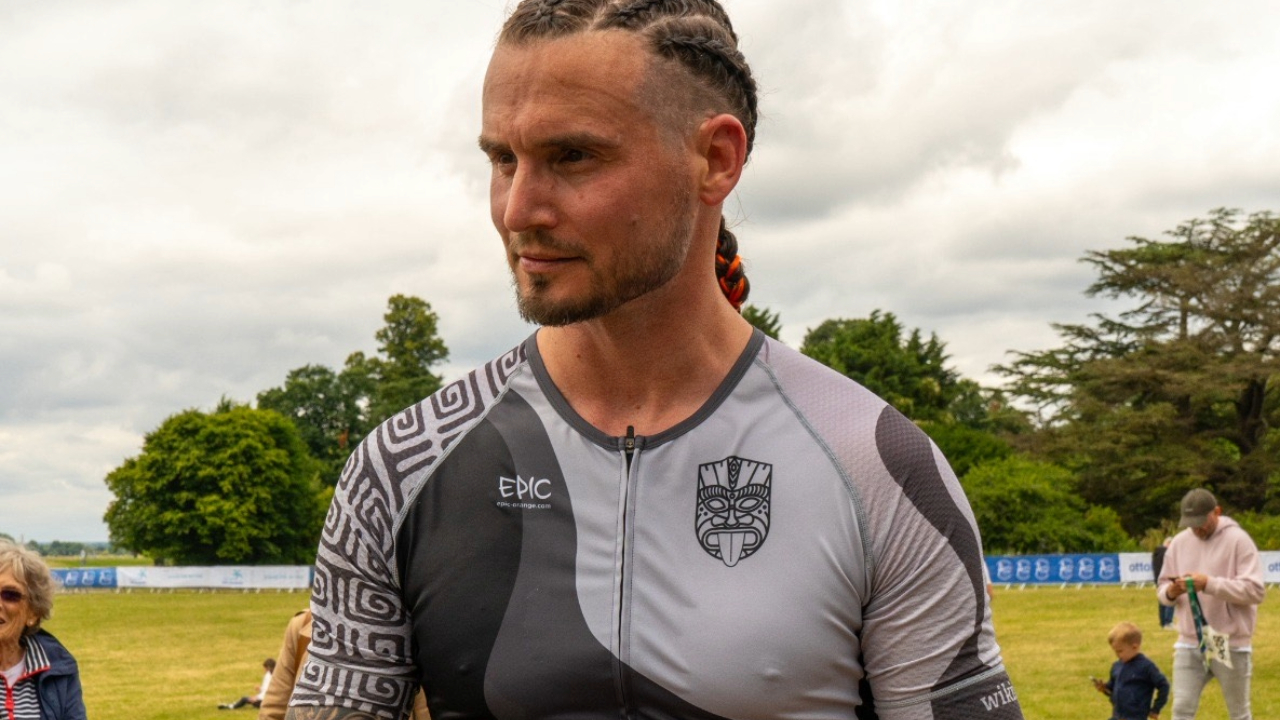
“Consistency builds endurance, skill, and confidence. It helps you adapt to the physical demands of the sport and enhances your overall performance. Whether it’s getting in your swim, bike, or run workouts, or focusing on recovery and nutrition, establishing a routine and sticking to it will yield far greater results than sporadic bursts of intense training.”
“Remember, it’s the small, everyday efforts that accumulate over time to create significant progress. Embrace the journey, be patient with yourself, and trust that consistent effort will lead you to your goals.”
“If that’s an Outlaw start line – I’ll see you there!”
Inspired by Rob’s story and want to experience the famous Outlaw orange carpet for yourself? Take a look at our Outlaw Half Holkham and our Outlaw Nottingham race guides.

